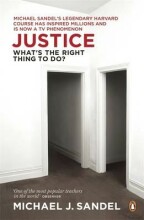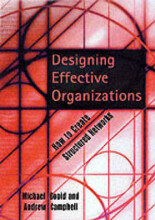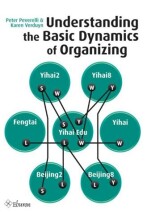Summary: Justice : What's The Right Thing To Do? | 9780141041339 | Michael J Sandel
- This + 400k other summaries
- A unique study and practice tool
- Never study anything twice again
- Get the grades you hope for
- 100% sure, 100% understanding
Read the summary and the most important questions on Justice : what's the right thing to do? | 9780141041339 | Michael J. Sandel.
-
1 Sandel: Justice whats the right thing to do. Ch. 1 Doing the right thing
This is a preview. There are 12 more flashcards available for chapter 1
Show more cards here -
What is the conclusion of Sandel regarding theories of justice?
That ancient theories of justice start with virtue (deugd), while modern theories start with freedom. Sandel explores the strenghts and weaknesses of each. This contrast can mislead. -
Name shortly 4 important philosophers and their stream:
Aristotle: tilos/categorical reasoning
Kant: categorical reasoning
Mill: utilitarian
Rawls: egalitarian -
Describe how utilitarianism, libertarians and egalitarians approach to justice regarding what are people due and why?
-Utilitarianism: most influential account of how and why we should maximize welfare: seek the greatest good for the greatest number
-Libertarians: The laissez-faire camp: free market libertarians who believe that justice consists in respecting and upholding the voluntary choices made by consenting adults.
-Egalitarians: The 'fairness camp' argues that unfettered (not restricted/free) markets are neither just nor free. Justice require policies that remedy social and economic disadvantages and give everyone a fair change at success. -
To ask whether a society is just is to ask how it distributes the things we prize (income, wealth, duties, rights, power, opportunities, offices, honors). A just society distributes these goods in the right way: it gives each person his due. The hard questions begin when we ask what people are due (verschuldigd), and why. How did Sandel wrestle with these questions?
He pondered the rights and wrongs of price gouging (hurricane), purple heart (military), financial bailouts (financial crisis/bonus). Sandel identified 3 ways of approaching the distribution of goods: welfare, freedom, virtue. Each of these ideals suggests a different way of thinking about justice. Sandels book explorers the strengths and weaknesses of these 3 ways of thinking about justice. -
The approach to justice that begins with freedom is a capacious (veelomvattende) school. In fact, their are 2 rival camps. Which 2? Describe them (Sandel)?
The laissezfaire camp and the fairness camp. Laissez-faire = free-market libertarians who believe that justice consists in respecting and upholding the voluntary choices made by consenting (instemmende) adults. The fairness camp = theorists of more egalitarian (gelijkheid) bent. They ague that unfettered (onbeperkte) market are neither just nor free. In their view, justice requires policies that remedy social and economic disadvantages and give everyone a fair change at success. -
What does the book of Sandel provide?
The book is not a history of ideas, but a journey in moral and political reflection. Its goal is not to show who influenced whom in the history of political thought, but to invite readers to subject their own views aboutjustice to critical examination—to figure out what they think, and why. -
The 3 ways of thinking about justice results in the great question of political philosophy. What does Sandel mean?
Does a just society seek to promote the virtue of its citizens? Or should law be neutral toward competing conceptions of virtue, so that citizens can be free to choose the best way to live? -
What is the opinion of ancient theories of justice? (Sandel)
Justice start with virtue: Aristotle said that justice means giving people what they deserve thus you have to determine what is the most desirable way of life (to determine what people deserve, we have to determine what virtues are worthy of honor and reward. The most desirable way of life has to be determined. The law can't be neutral on questions of the good life/values) -
What is the opinion of modern theories of justice? (Sandel)
Justice start with freedom: Kant and Rawls say that a just society should not rest on any particular conception of virtue because a just society should respect each person's freedom to choose his own conception of 'the good life'. -
What is the difference between ethics and law?
A law isn't always ethical (for ex. WWII: jews could be killed according to the law, not ethical). Ethics goes beyond laws. F.e.: you don't insult people (no law, but ethical). (Business) ethics has increased, because business have grown/more power and more transparency and globalization.
- Higher grades + faster learning
- Never study anything twice
- 100% sure, 100% understanding
































